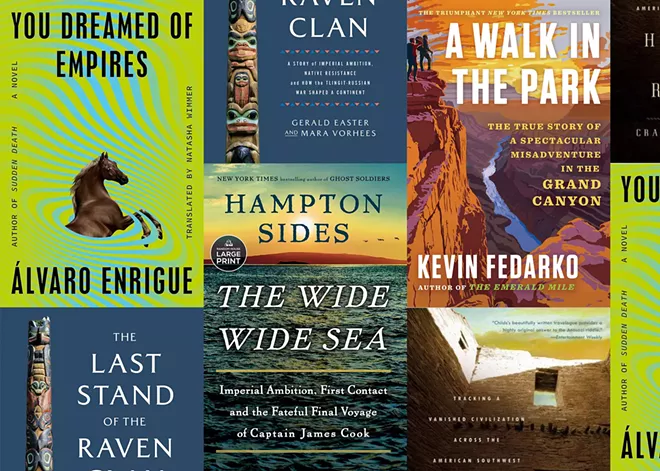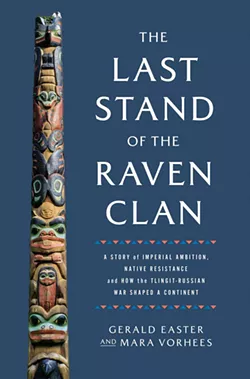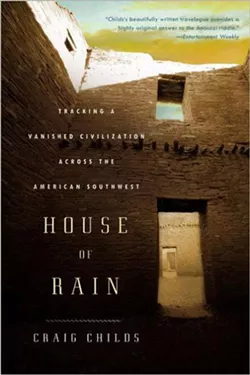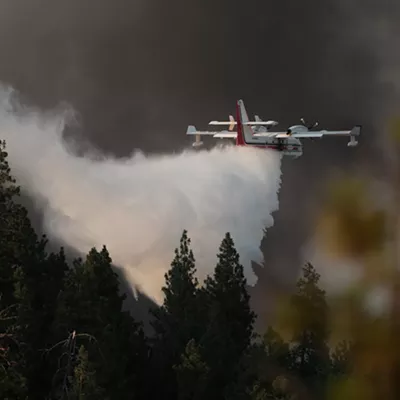These limbo days between years, days we spend looking forward as much as backwards, are hinges that close and open doors. Reflection and anticipation are particularly appropriate in these final days of 2024, because we are about to step through a door into a new age of discovery.
From genetic, viral and immunotherapy research that's transforming medicine and biology, to space travel that's transforming our sense of place, to Artificial Intelligence that could transform us, we are stepping into an exploration of the unknown.
Perhaps, if only subconsciously, that's occupied my mind this past year, because when I listed my five favorite books of 2024 (four published this year; one in 2008), I realized each was related to exploration. There are lessons in these five books that could instruct us as we look forward.
Hampton Sides' book Blood and Thunder: The Epic Story of Kit Carson and the Conquest of the American West (2006) is one of my favorite books of all time, so I eagerly awaited his 2024 book, THE WIDE WIDE SEA. It did not disappoint. Sides, an extraordinary storyteller, provides an account of British explorer Cook's third and final voyage (1776-1780). Having already significantly contributed to astronomy, ethnology, nutrition, navigation and Earth's geography in his first two voyages, in his third, Captain James Cook (yes, Gene Roddenberry's James Kirk's name is intentionally similar) explored much of the Northwest Pacific Coast and searched for a sea passage over North America. Sides tells this story of exploration from a 21st Century perspective, acknowledging that while Cook's interest lay in cartography and scientific discoveries, one cannot — and Cook did not — ignore how his exploration facilitated conquest and colonialism.
THE LAST STAND OF THE RAVEN CLAN by Gerald Easter and Mara Vorhees (2024) focuses on the exploiters who follow the explorers. In 1728 and 1741, Captain Vitus Bering, sailing for the Russian Tsar, searched for a connection between Siberia and America so that Russia could challenge Spain's claim to the entire Pacific Coast of North America. Bering did not find a connection, but he did find fur, specifically sea otter fur, a most prized commodity in China and around the world. By the 1760s, Russian fur traders exploited the Alaska coast and archipelago. By the 1780s, they were fighting with indigenous people and building forts and colonies there. Russia (let's not give Putin any ideas) claimed and intended to settle as far south as San Francisco and would have had the Tlingit not stopped them at Sitka. This is a story of the unintended cultural and environmental consequences of discovery, and of indigenous people, decades before Red Cloud, Crazy Horse and Sitting Bull, who stopped the expansion of an empire.
YOU DREAMED OF EMPIRES by Alvaro Enrigue (2024) is a surreal, somewhat hallucinogenic account of the first encounters between Spanish conquistador Hernan Cortes and Aztec Emperor Moctezuma. The emperor is detached from the daily lives of his people, absorbed instead in ritual and self-indulgence. Cortes is at odds with Spanish authorities, impatient, confused and greedy. Neither understand the other. Neither really tries to. This is less a story of cultures clashing and more a story of cultures simply being bewildered by the other. Toward this story's end, bits of the future seep into 1519, just as shards of this dream could reflect upon today or tomorrow.
If you want to laugh, cringe and cry, you gotta read A WALK IN THE PARK (2024). Those who read Kevin Fedarko's The Green Mile and wonder how he could top that, need to read this book and find out. Two friends set out to explore the Grand Canyon (not just the park, but the entire canyon) from end to end. I have hiked three different segments of the canyon backcountry that Fedarko covered, so I can relate to the beauty and brutality the canyon dishes out. Fedarko nails it. His is a story of exploring a space unlike any other on Earth, of sensing the awe and other-worldliness that accompanies one down towards our planet's core. This story explores how, in our drive to progress, we do and don't preserve the sacred. It's an exploration of self, and how we experience the unexpected.
Also set in the American Southwest, Craig Childs' HOUSE OF RAIN (2008) explores what happened to the ancient Puebloans (often called Anasazi). Between 900-1200 CE, these people built a civilization in the Southwest that excelled in art, trade, engineering, architecture and astronomy. Chaco, their center, supported 30,000-40,000 people, who just disappeared. Of course, 40,000 people don't disappear. From still preserved rooms tucked high into canyon walls, to storage vaults in museum basements, Childs literally, step-by-step, follows the path of those who abandoned Chaco, exploring where they went, who they became, and how they did and didn't deal with climate change, religious zealotry and immigration.
In these last days of 2024, you could read a bookshelf about what's happening in America and the world right now, but these reads will be more fun, better for your blood pressure and might provide some context for thinking about what lies on the other side of a door that's about to open. ♦
Bill Bryant, who served on the Seattle Port Commission from 2008-16, ran against Jay Inslee as the Republican nominee in the 2016 governor's race. He lives in Winthrop, Washington.

























